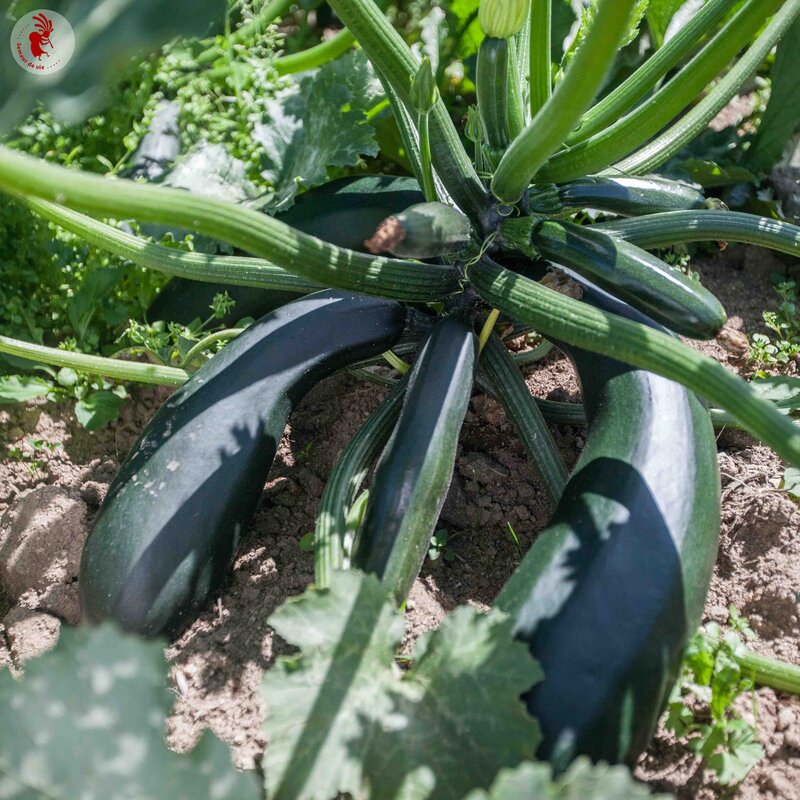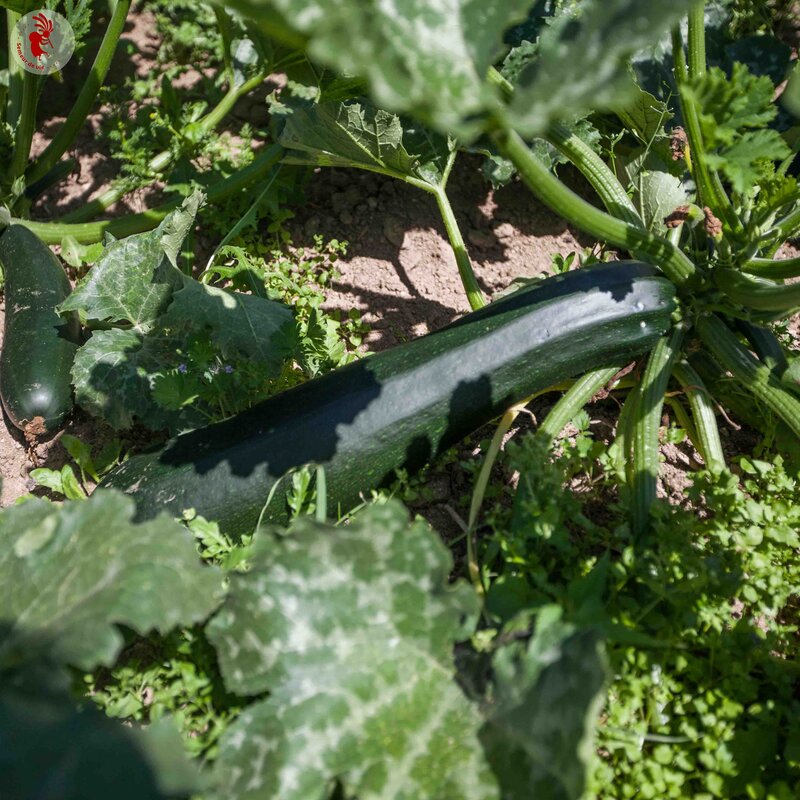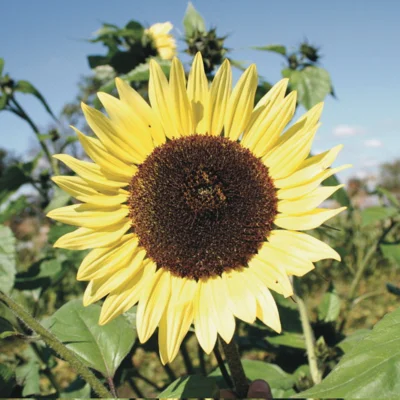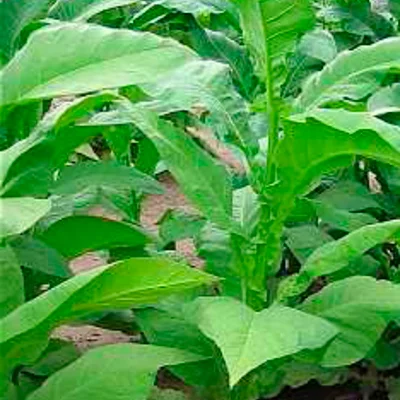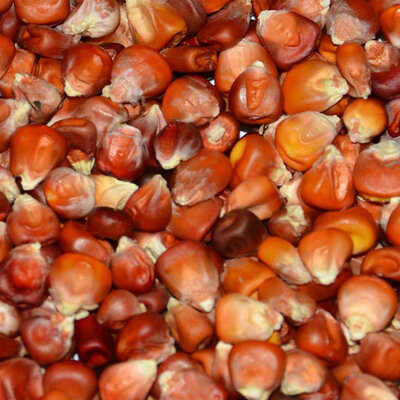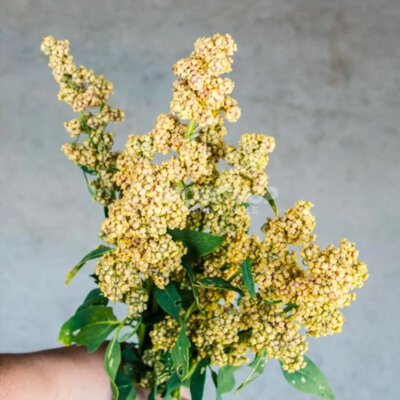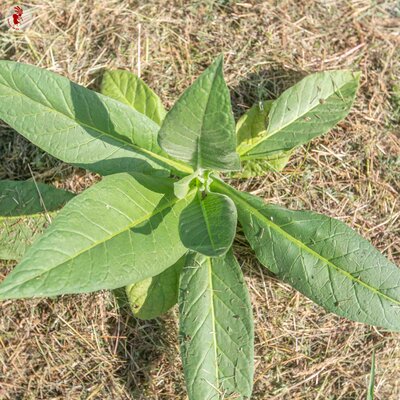Zuboda - Zucchini
This variety produces an abundance of elongated, dark-green, slightly mottled fruit with firm, sweet flesh. Foliage is green speckled with white. This variety has a vigorous growth habit.
WHAT ARE THE
characteristics of zuboda?
The "Zuboda" variety, of the Cucurbita pepo species, has a bushy habit and produces elongated, dark-green fruit measuring 20-30 cm. The flowers can be eaten as a salad or fritter.
how to sow zuboda zucchini ?
There are two ways to sow "Zuboda" zucchini seeds:
- Sow "Zuboda" zucchini seeds in pots, between March and April, placing 2 to 3 seeds per pot. Transplant 2-3 weeks after sowing. Fibrous roots, caused by sowing zucchini seeds too early, can make it difficult for the plants to develop in the garden. The right temperature for zucchini seeds, to help them germinate, is between 18 and 20°C. It's important to keep them moist to help them germinate.
- Sow outdoors, from April to June. To sow directly in the garden, wait until the last frosts have passed and choose a sunny spot. In the vegetable garden, prepare holes 2 weeks in advance, filled with compost or organic matter and spaced 1 m apart in all directions, to accommodate the zucchini seedlings.
HOW TO GROW ZUBDA?
Transplant zucchini plants in a sunny spot in mid-May, spacing them about 1 m apart in all directions. Be sure to water them well. Compost is recommended. Mulch the base of the plant to preserve soil moisture. Water close to the base in summer, without wetting the leaves.
Companion plants can be used to improve zucchini formation and repel pests. Include plants such as basil or beans.
WHEN TO HARVEST ZUBDA?
Zuboda" zucchinis are best harvested between May and October. It's best to harvest them while they're still young. Cut them close to the stem rather than pulling them off. Zucchini flowers are also edible.
HOW TO STORE ZUBDA?
Freezing is an effective way of keeping zucchini fresh. Simply cook them, then place them in airtight containers to freeze.
WHY DOESN'T MY ZUCCHINI PLANT PRODUCE FLOWERS OR FRUIT?
When a zucchini plant doesn't produce flowers or fruit, there may be several reasons for this.
Zucchini production can be affected by high temperatures. Poor pollination can also prevent fruit formation. To avoid these problems, we recommend growing several zucchini plants together and attracting pollinating insects to ensure good fertilization of the flowers.
HOW TO PRODUCE ZUBDA SEEDS?
Here are the steps to making zucchini seeds:
-
Choose the best zucchini plant: the one with the earliest fruit, the one with the most fruit, etc.
-
Let the best zucchini from this plant mature on the ground. They will grow and their skin will thicken.
-
Wash the seeds to remove all pulp.
-
Let the seeds air-dry on absorbent paper or a plate for about a week.
-
Store the dried seeds in a paper bag or airtight container away from light and moisture.
-
The seeds are now ready to be used for sowing next year. But they can be stored for several years without any problem.
We've put together a Youtube video on zucchini seed extraction.
These products may also be of interest to you
in the ground, in bucket
Sow in pots at 18-20°C, 2 to 3 weeks before planting. Transplant with the root ball into the ground, after the last frosts, at a distance of 1 m in all directions. For sowing directly in the ground, sow after the last frosts when the soil is well warmed. Sow or transplant in planting holes filled with compost and prepared 2 weeks in advance.
March, April, May
April, May, June
May, June, July, August, September, October
in the ground, in the greenhouse
sunny
medium
humus
rich, furniture, heavy
Cucurbita pepo
early
From 500 to 1000 g
12 seeds
elongated
farm
Dark green
edible
From 45 to 100 cm
From 20 to 30 cm
bushy
Switzerland
This variety is a selection made by a team of Swiss biodynamists.
Très riche en sels minéraux et en fibres, la courgette offre un bon équilibre entre le sodium et le potassium et possède des vertus dépuratives, diurétiques, laxatives, nutritives et rafraîchissantes. De plus, elle constitue une source de vitamine B9 — utile dans le renouvellement cellulaire — et de vitamine C, connue pour son impact positif sur les systèmes immunitaire et nerveux. Elle contient également des antioxydants, indispensables pour protéger les cellules de l’organisme face aux radicaux libres.



